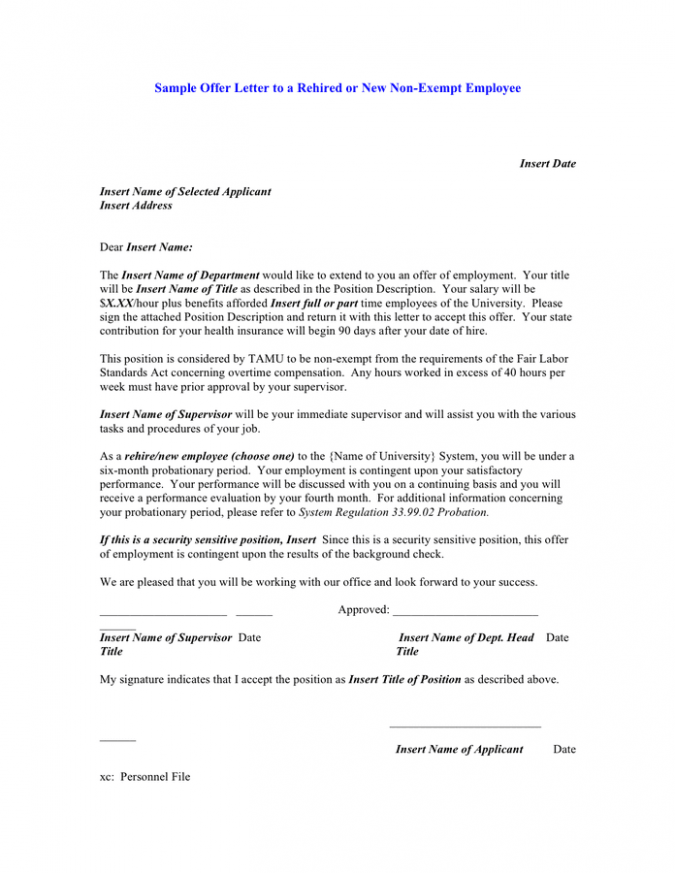Non Exempt Offer Letter Template Taxpayers experiencing tax obligation financial debt issues hardly ever contrast the IRS offer in compromise with the Phase 13 insolvency. Frequently, the Chapter 13 will certainly offer a extra specific treatment for the taxpayer to solve tax obligation financial obligation. This write-up checks out the relative advantages of both the offer in compromise as well as Phase 13.

An deal in concession might be one of the most marketed tax treatment. You can not listen to radio or view television without being pounded by ads to settle your tax financial debt. Often the ads announce that the IRS has announced that kindness in the collection of the tax debt exists for a minimal time. The depressing reality is that the compassion statement by the internal revenue service was commonly for various other trouble area, such as tax shelters. The internal revenue service declines roughly 85 percent of all deals in concession filed due to question as to collectibility. Deals in concession are normally filed because the taxpayer believes the tax obligation financial obligation can not be paid, Doubt regarding Collectibility is one of the most usual type of deal in concession. Various other kinds of deals in compromise are outside the scope of this post.
The benefit of the deal in compromise is that the tax liabilities, consisting of the relevant fines as well as passion, are minimized to the quantity the IRS as well as the taxpayer concur can be paid. Both celebrations must accept the regards to the deal in compromise. The offer in compromise is a contract between the IRS and also the taxpayer. The terms of the agreement can be implemented against the taxpayer as well as the internal revenue service.

Approval of the deal in concession occurs when the internal revenue service thinks that the deal goes to the very least as much as could be collected by the IRS over the ten years life of the statute of restrictions. The internal revenue service will turn down an deal that is for a minimal amount than it can otherwise accumulate.
The internal revenue service utilizes a uniform set of economic standards that are not flexible in both the evaluation of the amount paid monthly in an installment arrangement and in an deal in compromise. These requirements limit the expenditures for living that the taxpayer can assert are needed for living. The standards consist of food, real estate and also utilities, transport, and also expense wellness expenditure. The requirements might create radical problems for a taxpayer with a reasonably greater standard of life. Overhead are not influenced by the requirements.
The evaluation of the minimal offer in concession that will make the offer processable is the equity in the taxpayer’s assets plus the amount that could be paid in an installation agreement over a specified period of time. The duration of the future monthly repayments thought about by the IRS depends upon exactly how the deal will certainly be paid by the taxpayer. The internal revenue service desires 48 months of monthly repayment if the taxpayer offers a round figure. The IRS desires 60 months of regular monthly payment if the offer is to be paid in a short term arrangement of 2 years or less. Nevertheless, the internal revenue service will certainly take into consideration valid problems such as retired life and wellness of the taxpayer in reducing the duration of the multiplier.



